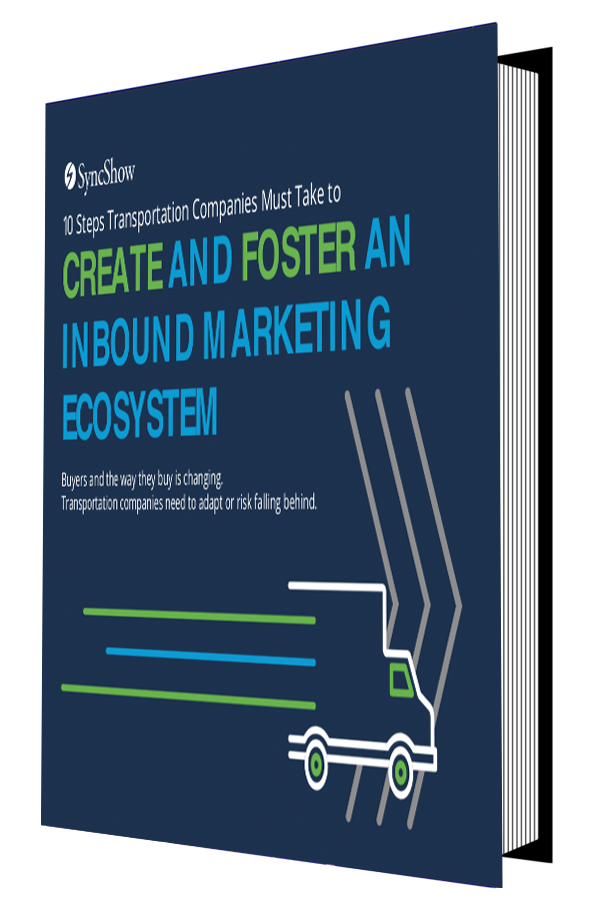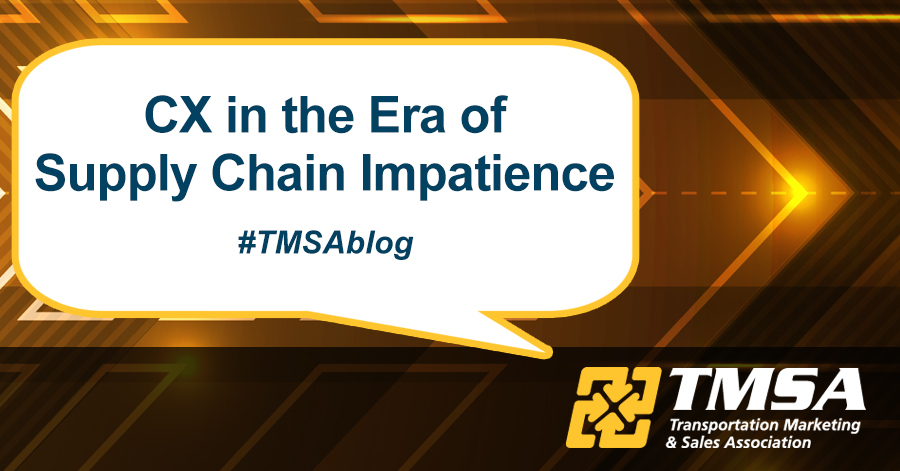
Written By: TMSA Staff | May 16, 2019 12:00:00 AM
There’s no question that the transportation and logistics industry is in a current state of rapid change, thanks to a large degree to to the evolution of technology. Shipment tracking and tracing, GPS, blockchain, and electronic messaging with customers, providers and drivers are just a few examples that are greatly impacting transportation operations.
Equally important to the marketing and sales professional in the industry are dramatic changes in how customers in this space are making their buying decisions. They want to conduct their research both online and with industry peers. They identify their problem, find a solution and look for appropriate vendors—all without engaging directly with companies. In fact, HubSpot reports that purchasers don’t even engage with a salesperson until they are 70% of the way through the evaluation process.
With this in mind, transportation and logistics companies are looking to evolve their organization - as well as their sales and marketing efforts - in order to meet these customers where they are in the buying cycle at any given point.
How are they doing this, you ask? The answer is Inbound, according to TMSA’s Affiliate member, SyncShow, which is a digital marketing agency that services small- to mid-sized B2B companies specifically in the transportation and logistics space. But first, according to SyncShow it’s important to understand the four phases of inbound:
The 4 Stages of Inbound
Before you begin formulating an inbound marketing strategy, you need to understand the logic behind each distinct inbound stage. Each stage centers around an action companies practicing the inbound methodology must consider and develop a strategic plan for, in order to create a harmonious ecosystem for marketing success.
TMSA has been heavily focused on “The Buyer’s Journey” since it began aggressively educating its members on the power of content marketing in 2017 – starting with our keynote speaker that year, Joe Pulizzi, founder of the world-renowned Content Marketing Institute. Below are the 4 stages of inbound:
Stage 1: Attract (Strangers Become Visitors). Start by driving traffic to your website using blog posts, keywords (or relevant phrases and terms your ideal buyers search for online) and social media messages that attract the right types of strangers to your website.
Stage 2: Convert (Visitors Become Leads). Give your site visitors opportunities to become leads—entice them with the information they need to solve their problems. This information should largely be “gated,” or accessible to them only if they provide their contact information via an online form.
Stage 3: Close (Leads Become Customers). Continue to nurture and manage lead relationships using emails, marketing automation software and Customer Relationship Management (CRM) software (more on that later). Continue to provide content that increasingly hones in on a specific challenge or addresses a pain point and pushes buyers closer to the sale of your product or service.
Stage 4: Delight (Customers Become Promoters). Even after converted, you can continue to provide customers with information that helps them do their jobs better or alleviates other pain points. Continue to wow them, and you’ll have a promoter on your hands that will help you gain future business.
SyncShow is a Platinum sponsor of TMSA in 2019, and also is an exhibitor/sponsor at the upcoming TMSA Logistics Marketing & Sales Conference June 9-12 at the Omni Amelia Island Plantation Resort near Jacksonville, Florida.
Download SyncShow’s ebook:
10 Steps Transportation Companies Must Take to Create and Foster an Inbound Marketing Ecosystem
Tags: Strategy
-1.jpg)
In ancient mythologies from around the world, it’s common to find gods and monsters bearing multiple heads, and such beings are depicted as formidable and difficult to defeat. It turns out the...

By Keith Biondo, Publisher, Inbound Logistics magazine, an Affiliate member, 2017 sponsor and “Media Friend” of TMSA. Given the recent emerging trend and focus on CX and “the Buyer’s Journey” within...